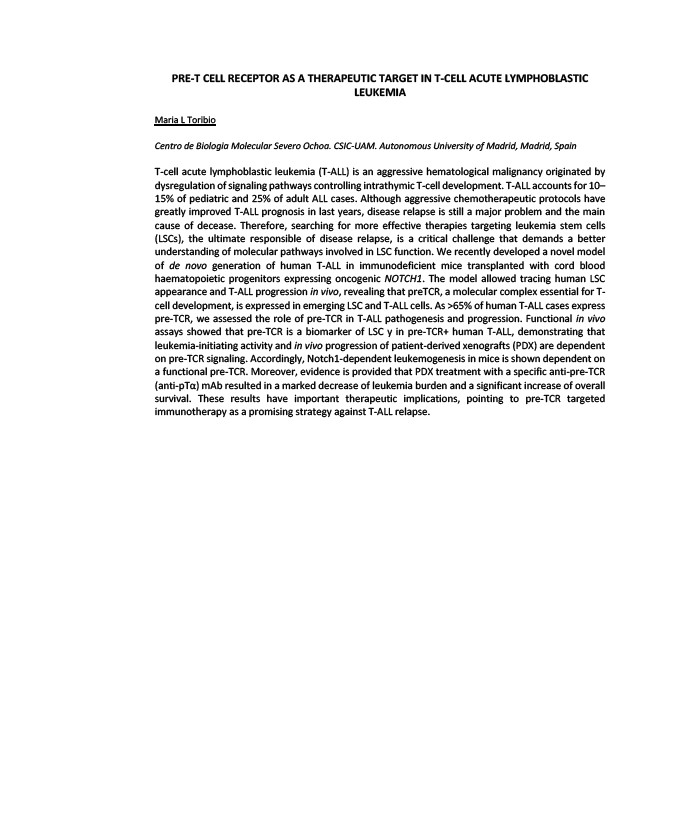
PRE-T CELL RECEPTOR AS A THERAPEUTIC TARGET IN T-CELL ACUTE LYMPHOBLASTIC
LEUKEMIA
Maria L Toribio
Centro de Biologia Molecular Severo Ochoa. CSIC-UAM. Autonomous University of Madrid, Madrid, Spain
T-cell acute lymphoblastic leukemia (T-ALL) is an aggressive hematological malignancy originated by
dysregulation of signaling pathways controlling intrathymic T-cell development. T-ALL accounts for 10–
15% of pediatric and 25% of adult ALL cases. Although aggressive chemotherapeutic protocols have
greatly improved T-ALL prognosis in last years, disease relapse is still a major problem and the main
cause of decease. Therefore, searching for more effective therapies targeting leukemia stem cells
(LSCs), the ultimate responsible of disease relapse, is a critical challenge that demands a better
understanding of molecular pathways involved in LSC function. We recently developed a novel model
of de novo generation of human T-ALL in immunodeficient mice transplanted with cord blood
haematopoietic progenitors expressing oncogenic NOTCH1. The model allowed tracing human LSC
appearance and T-ALL progression in vivo, revealing that preTCR, a molecular complex essential for T-cell
development, is expressed in emerging LSC and T-ALL cells. As >65% of human T-ALL cases express
pre-TCR, we assessed the role of pre-TCR in T-ALL pathogenesis and progression. Functional in vivo
assays showed that pre-TCR is a biomarker of LSC y in pre-TCR+ human T-ALL, demonstrating that
leukemia-initiating activity and in vivo progression of patient-derived xenografts (PDX) are dependent
on pre-TCR signaling. Accordingly, Notch1-dependent leukemogenesis in mice is shown dependent on
a functional pre-TCR. Moreover, evidence is provided that PDX treatment with a specific anti-pre-TCR
(anti-pTα) mAb resulted in a marked decrease of leukemia burden and a significant increase of overall
survival. These results have important therapeutic implications, pointing to pre-TCR targeted
immunotherapy as a promising strategy against T-ALL relapse.